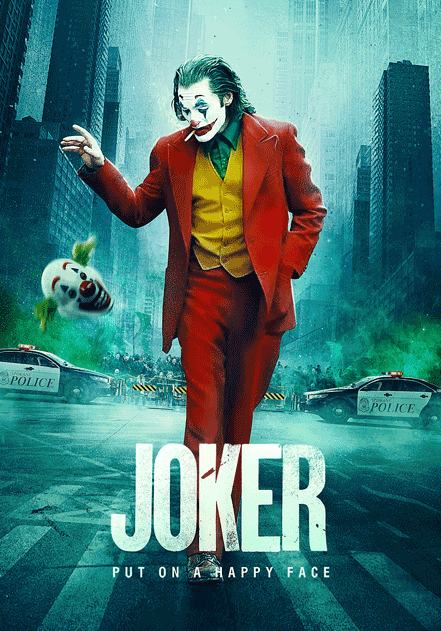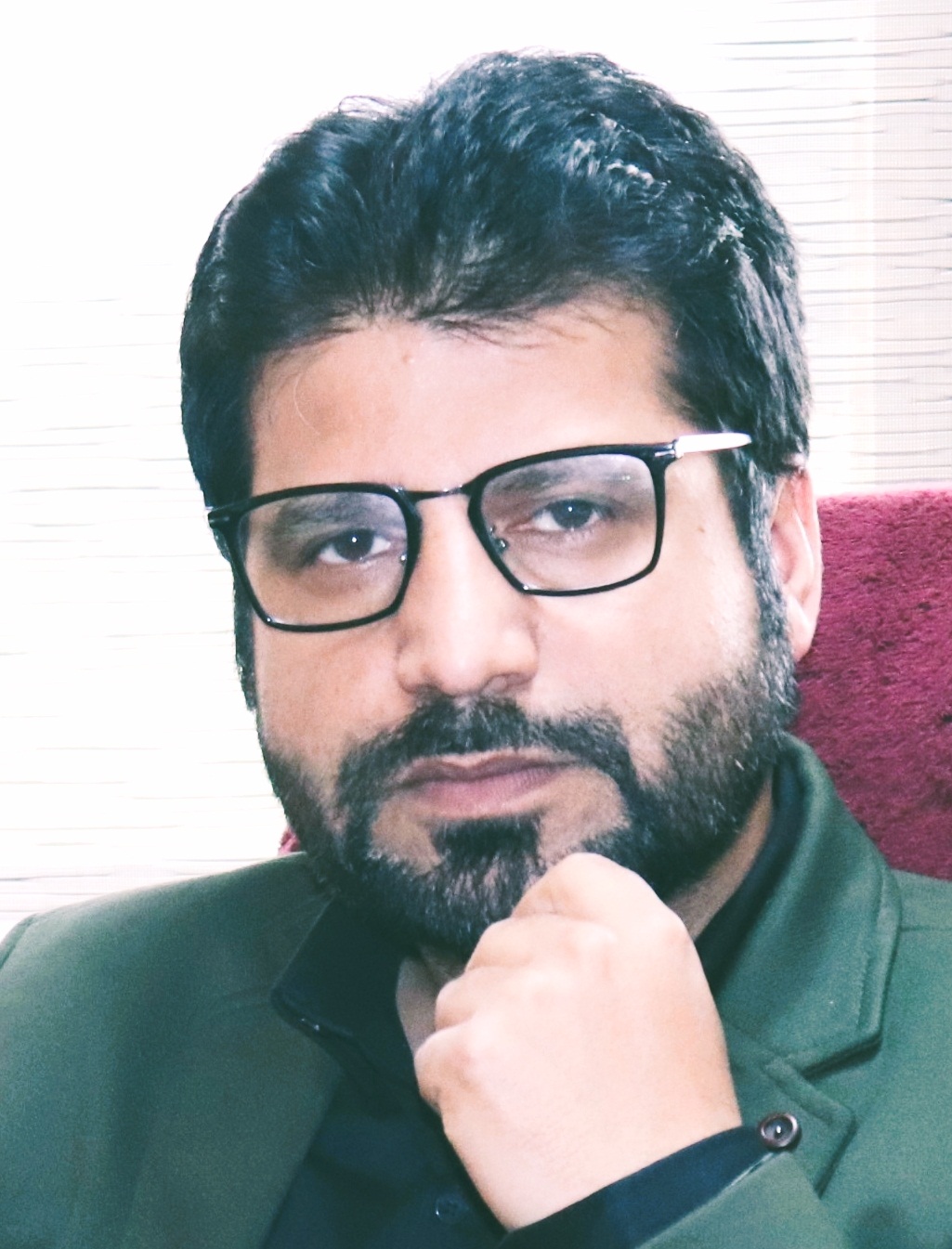“Joker” movie, directed by Todd Phillips, released in 2019 with Joaquin Phoenix in the lead role – winning an Oscar for the breathtaking display of his acting skills – is undoubtedly quite powerful and multi layered picture particularly its psychoanalytic richness. But few important points stand out which we will try to discuss as below:
(1) There is no doubt that the modern, individualistic, capitalistic, robotic outlook of life has atomized life and society into nothingness. It chokes “individuals”, marginalizes the marginalized and corners them to meaninglessness and isolation. Here we full heartedly sympathize with Joker in his protest. People who see through the heartless artificialities of the society, where race for “capital” pollutes everything from human relations to social customs and even religious practice, the status quo perceives such rebels as “mad” delinquents. Joker’s figure tries to expose such hypocrisies of modernity to ensure freedom for all.
However, we should maintain one important qualification here and that is the community based living is still a reality in eastern lands (to whatever extent possible) and therefore radical psychological problems and philosophical ideas that have specific context (say for example the late 20th century French style of postmodern philosophy which has specific post Nietzschean, post World War historical roots) should not be carelessly and forcefully imported into other lands and other contexts. Though these problems inevitably are to be found everywhere but still one should maintain a qualification in generalizing a certain “psyche” that has specific historical genesis because after all postmodern critique is careful about contexts, contingencies and historicity.
Coming back to the original point, Joker rightly points out the lifelessness of the mad competition and unilateral tabooing of the marginalized. The movie, therefore, does implicitly invoke a lot of Foucault. Foucault is right when he points out the historical and contingent contextual genealogy of normative values and institutional behavior and thus censures its possible oppression towards what seems to him as an arbitrarily tabooed entity borrowing its sole justification from the power of the status quo. Foucault, therefore, is a clear extension of Nietzschean style of archaeological study of the history of ideas which may not be without its problems. But just how far can one go with Foucault’s radical critique is the real question which we shall see in a moment.
(2) The second important point to note from the movie is that the modern western sensibility, having done away with religious worldview, still persists in presupposing “Kingdom of God on Earth” style of ideas in one form or another. They aren’t able to come out of the remnants of utopianism. The world is not one’s benevolent “Father” or “Mother”; life is tough. World is not heaven. The people are not here to laugh at my jokes (out of mere sympathy) even if I am not (generally) funny (we will come back to Joker’s objection to this point in a while). There will be comedians funnier than me. There are better doctors, better engineers, better carpenters, better painters and so on; the individual effort of perfecting one’s skill is not “oppressive” display of power. There is going to be a “competence hierarchy” of one sort or another within animal kingdom which even Marx and Engels concede. Not seeing reality as a dialectic of ease and difficulty, day and night, light and dark, yin and yang- creates all sorts of psychological problems.
Nietzsche, who inspired Foucault (and the whole postmodern critique in general), had a better sense of reality and suffering within it and posited ‘amor fati’ which is a mystical appropriation of life par excellence. It is an innocent openness and transparency to becoming. It is total acceptance of life as it is; not seeing life through ego sentimentalism but attaining God’s perspective of looking at world holistically/totally. Life is one holistic reality with both Apollonian and Dionysian elements. Far from being a nihilist, he asks us to embrace/accept/affirm life fully with its Apollonian and Dionysian elements. Nietzsche goes beyond Christian pity and sentimentalism and says ‘yes’ to life in its entirety including all pains and pleasures.
(3) Joker tries to slip in a little Foucault & as well as Derrida at the end of the movie by highlighting the marginalized/the left out but soon flips over self absurdity as Chomsky often points out this inevitable fate of Foucauldian moral relativism. In the one breath Joker rejects the general perception of something being funny (and asks ‘who gets to decide what funny is?’) but then in the same breath “makes up” a category of “being awful” out of thin air when he admits of killing three people on the train simply because they were being “awful”. As there cannot be a practically consistent radical sceptic (in philosophical terms) so is moral relativism impossible. This is where Foucauldian radical social constructivism has to contest with at least some “givenness” of the “natural”. Consider the fact that the very propensity one has towards comedy or sports or philosophy or science, has to do with one’s own psychological type; many people aiming at a certain career usually fail because of discord with one’s own basic psychological type; it has to do with the very “natural” inclination. Foucault is no doubt correct in pointing out human constructions that make up our interpretations and perceptions but eventually down the line one is forced to concede the inevitable presence of the category of the “natural” of some sort; even Žižek would accept some sort of Kantian “sublime” – though it has a different import.
Chomsky’s critique of relativism is quite relevant to mention here. He accepts what he calls the “uncontroversial notion of relativism” which is an observable fact i.e. normative values do vary across space and time but then he censures the radical extrapolation of this relativism which is problematic. It is true that there are variables but then there is a limited range to them owing to our basic human structure; this is one of the pillars of Chomsky’s work – what he calls “innatism”. He points out the obvious by saying that human being is not a bird or a stone; if we accept that then one already concedes some sort of innate definitive structure of humans; this is the “natural” grid beneath the Foucault’s “epistemic” grids which needs registration. This point if properly understood can shed a good amount of light on the so called gender studies as well.
The notion of “logic” (logos) and traditional conception of “intellect” as “nous” which promise objectivity are to be understood on this very plane of “innatism”. The point is that even if we say that the moral relativism is reflection of culture, we will still have to accept the “acquisition” of those values through some sort of Kantian a priori grids which differentiate us from other animals. Same goes for our virtual system (or for that matter any biological system) which has allowable variation but still an objective range. Human virtual system varies but they have objective range when compared with birds’ virtual system.
(4) Now, continuing on from the point of “unconscious” presupposition of “Kingdom of God on earth”, another crucial point that warrants mention is Joker’s fantasy of stardom and the world being crazy about him which is itself one of the problems of modernity (we will come to the psychological justification from familial disintegration, loneliness and isolation). This is why the movie “Fight Club” is better than “Joker” on this point. Assuming people’s goodness, heaven, cake walk on earth is itself the problem that begets various psychological disorders. The creative plane is dialectic of what Chinese wisdom would call “yin and yang”. It is “becoming”; it is a chaos. Deeper silence – the centre point of the turbulent circumference – is to be found within one’s own deeper consciousness whilst participating in the flux of the time. This is what Buddha like figure would say to Arthur.
5) Now, coming to the mob violence inspired by Joker; it is itself symptomatic of cynical “ideology” as Zizek puts it. In classical terms we would say that people suffer from “ideology” when they do things that they consciously do not know as to why they are doing them but within cynical ideology people very well know what they are doing but still nevertheless do them. These cynics often bring up their terrible abusive childhood (also attributed to Joker) or some other systematic abuse that they have suffered as the reason for the behavior they are displaying but this is the catch here- the argument that “we are sick” which warrants people’s “sympathy” becomes redundant when the pathology has been made conscious by the patient.
Psychopathic behavior is called so when the person is really sick as in he is driven by deeper unconscious complexes that he is unaware of. “The paradox here is”, says Žižek, “how can you know all this and still do it? This is the cynical functioning of ideology… Man is not simply a product of objective circumstances; we all have this margin of freedom in deciding how we subjectivize these circumstances which of course will determine us”. Moreover, the style and texture of “revolutionary” outpour in the form of riots (at multiple occasions in our recent past) exposes the fact that the rioters are still locked within the predominant ideology of consumerism when they break into shops and steal TV sets and so on. As Zizek points out that “it is a wild acting out within this ideological space of consumerism”.
Nevertheless, towards the end we should concede the fact that Joker is an extremely attractive character in his rebellion against hypocrisy, artificiality, individualism, mad competition, apathy, familial disintegration, loss of community, marginalizing the poor and downtrodden among other pathologies of modernity. We need to attend to it.
Post Script
Arthur’s schizophrenia and the possible split between Arthur and Joker have rich implications too but that warrants separate treatment.
(Author has done masters in Philosophy from JNU Delhi. He can be reached on: [email protected])








